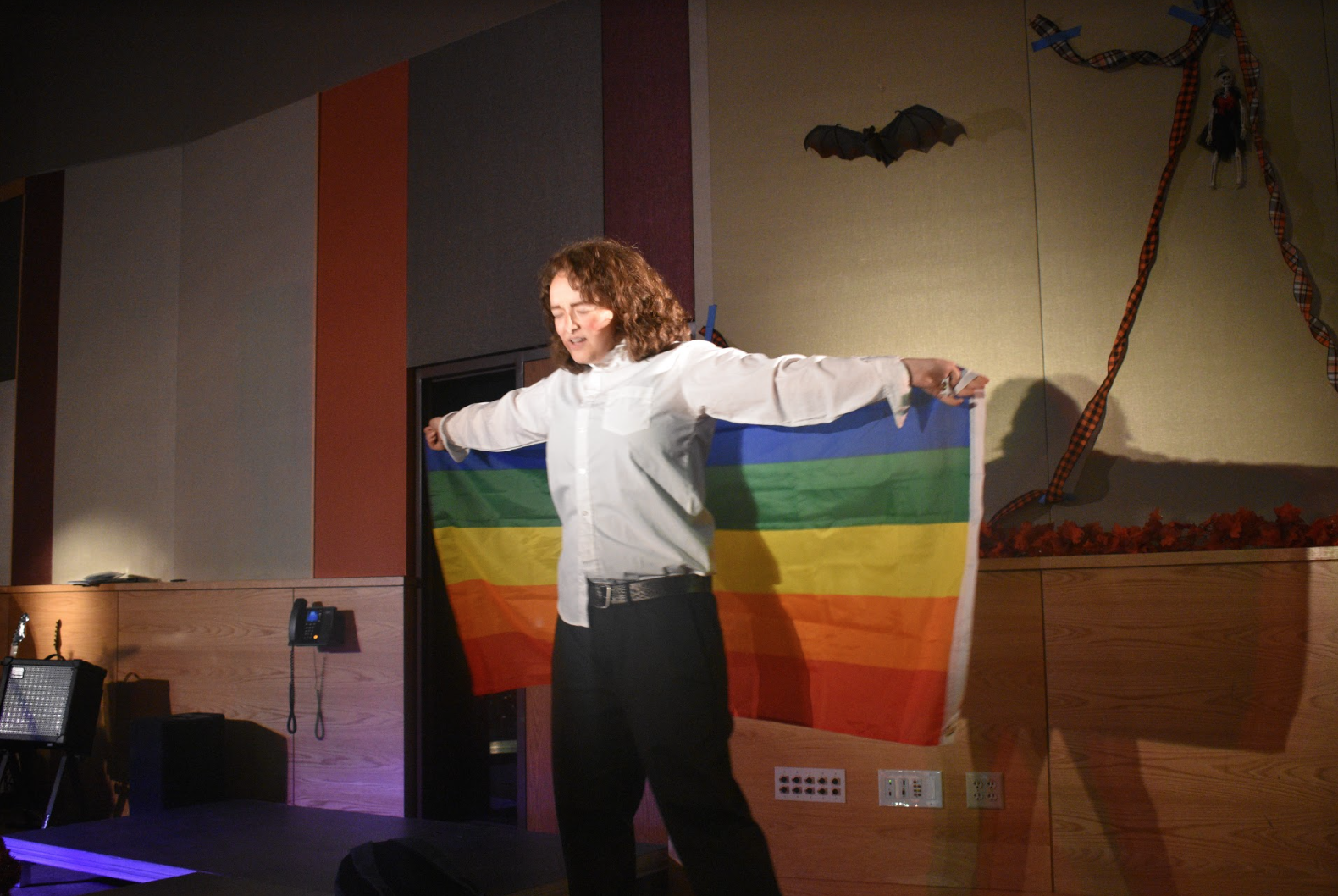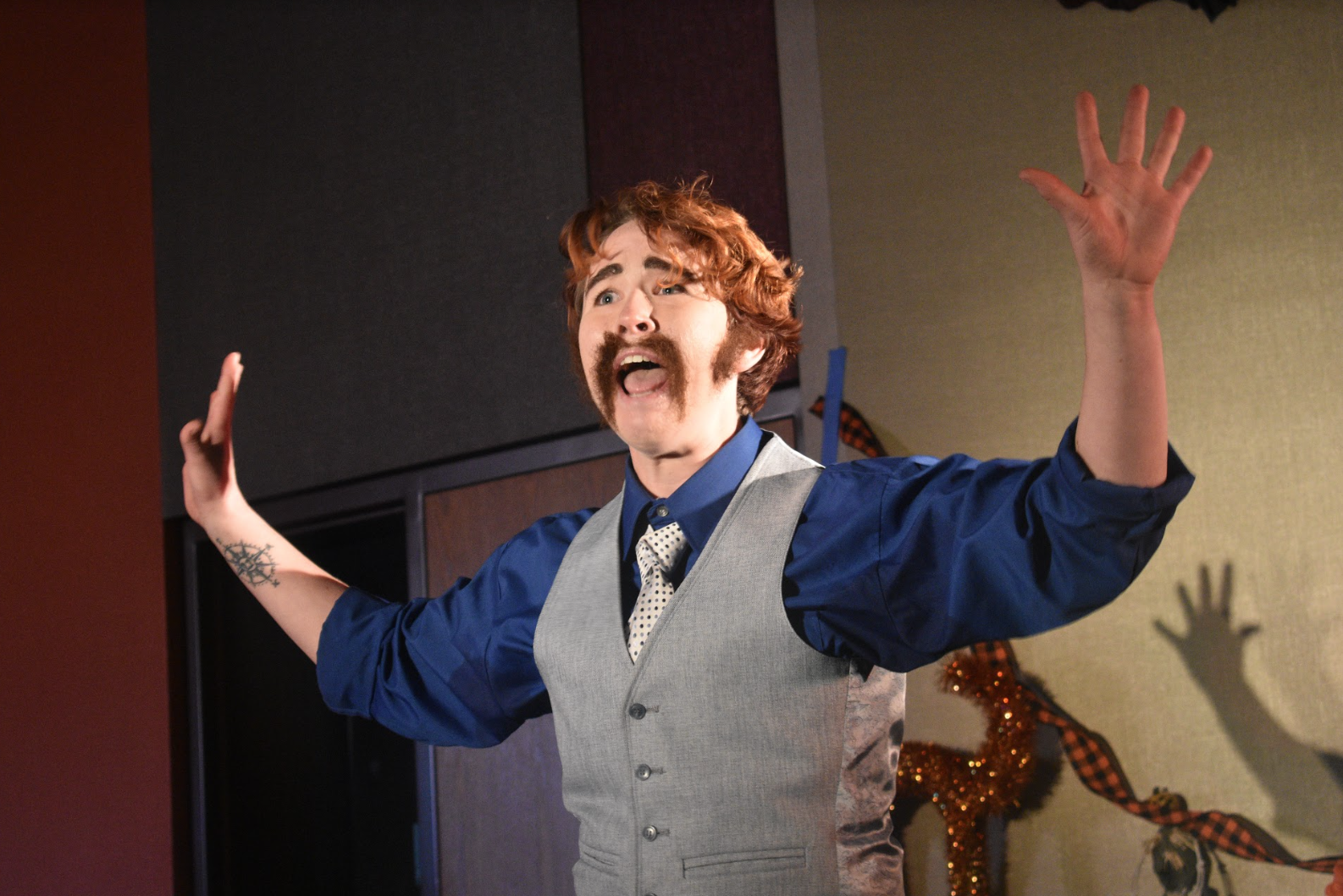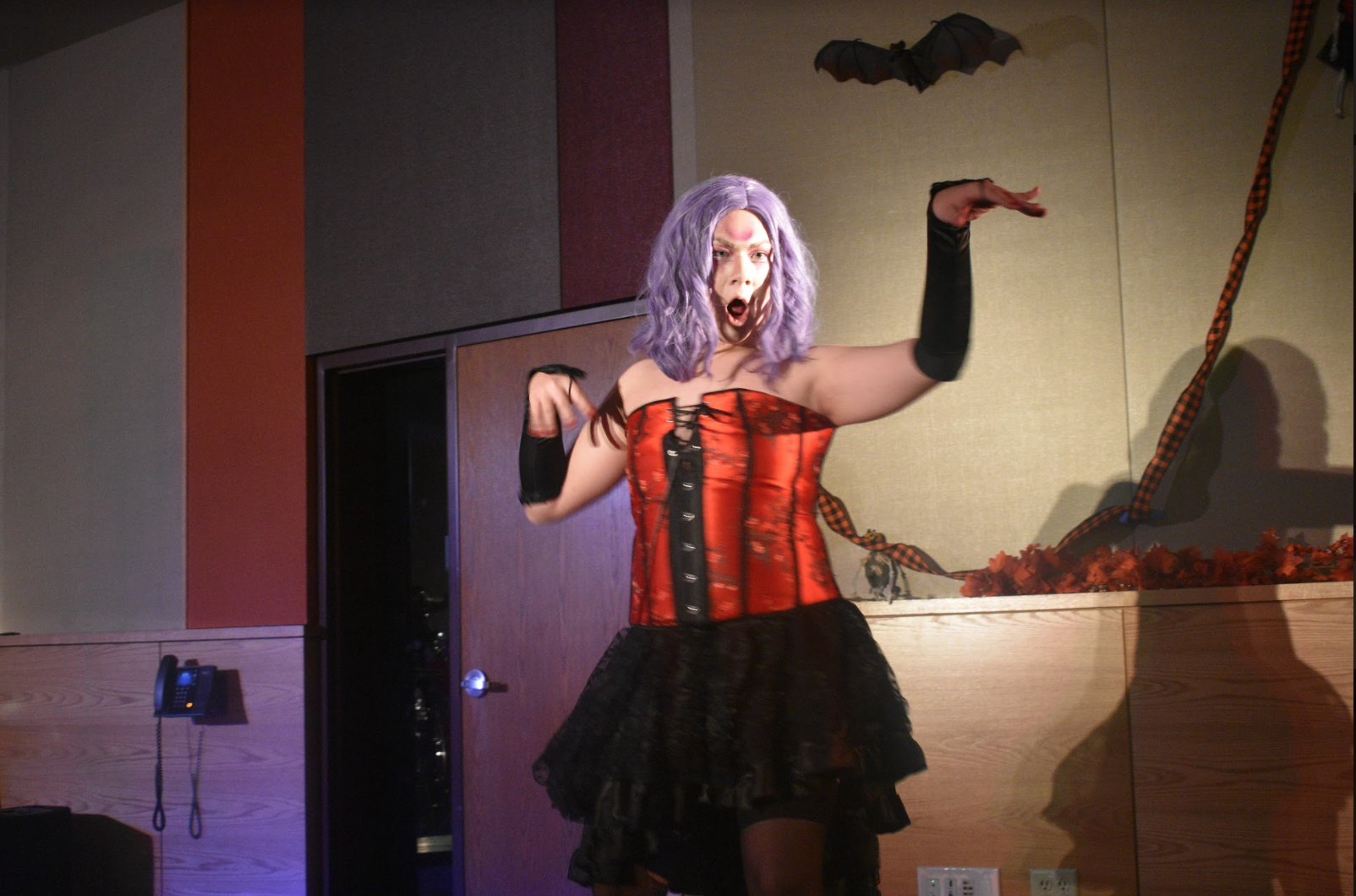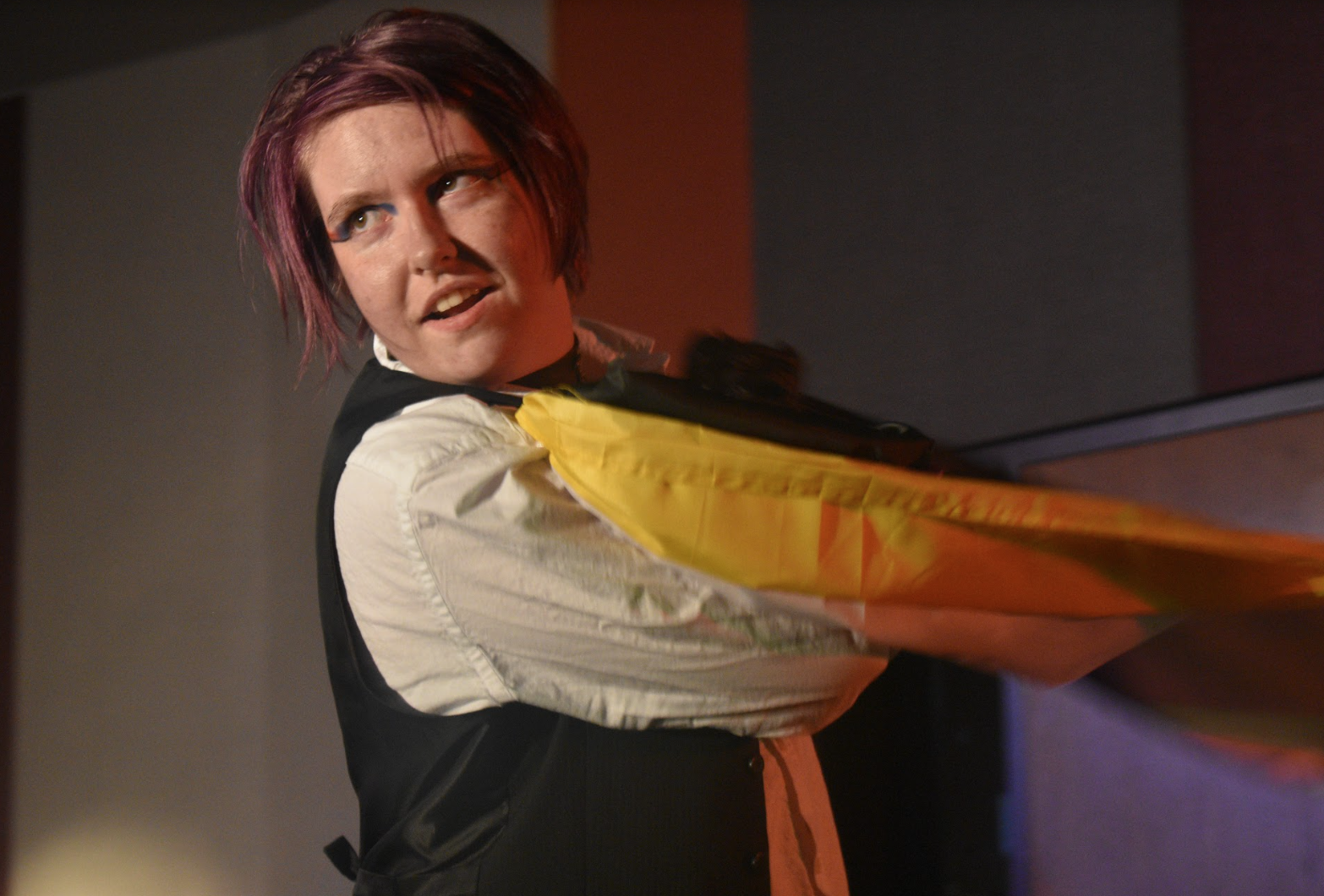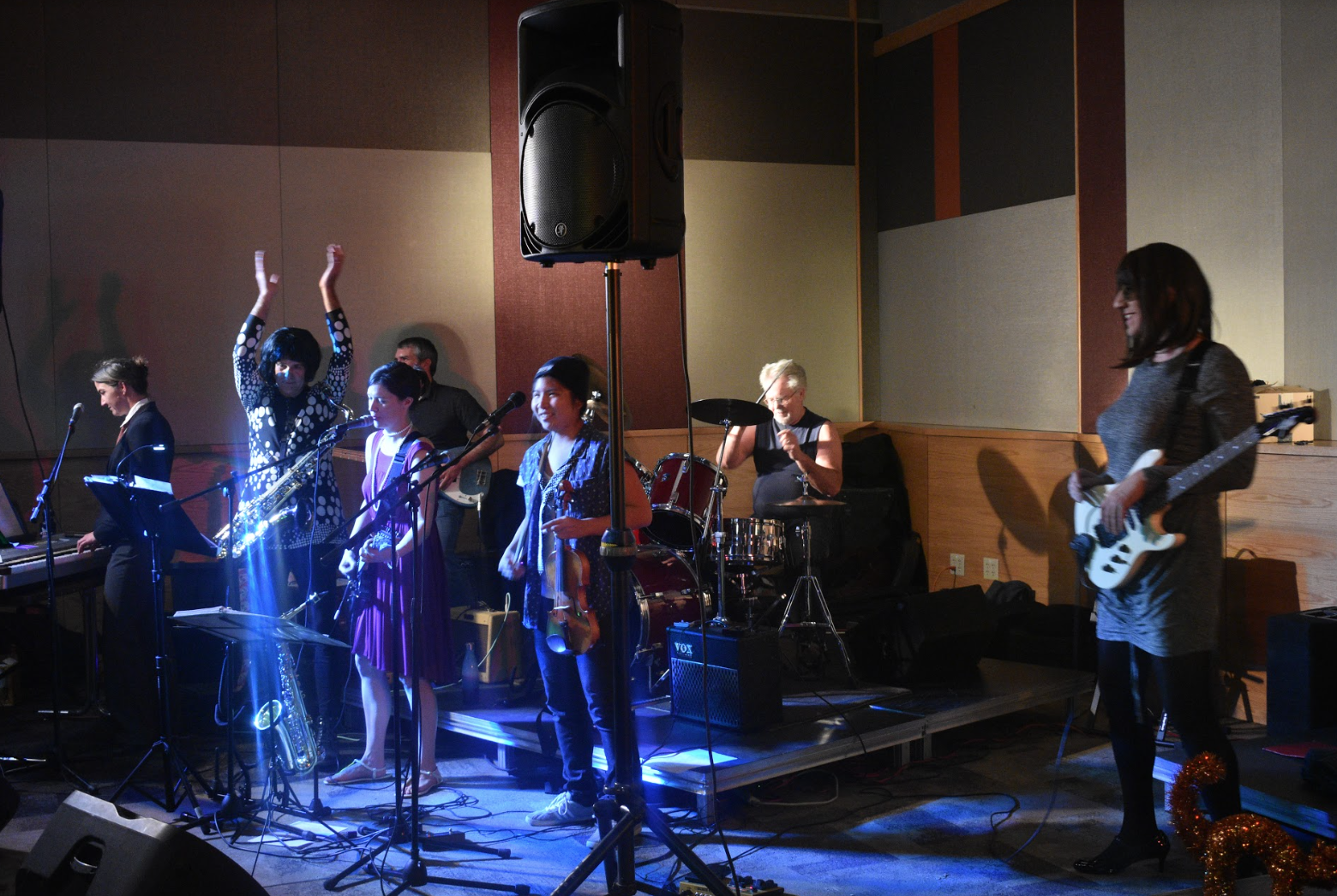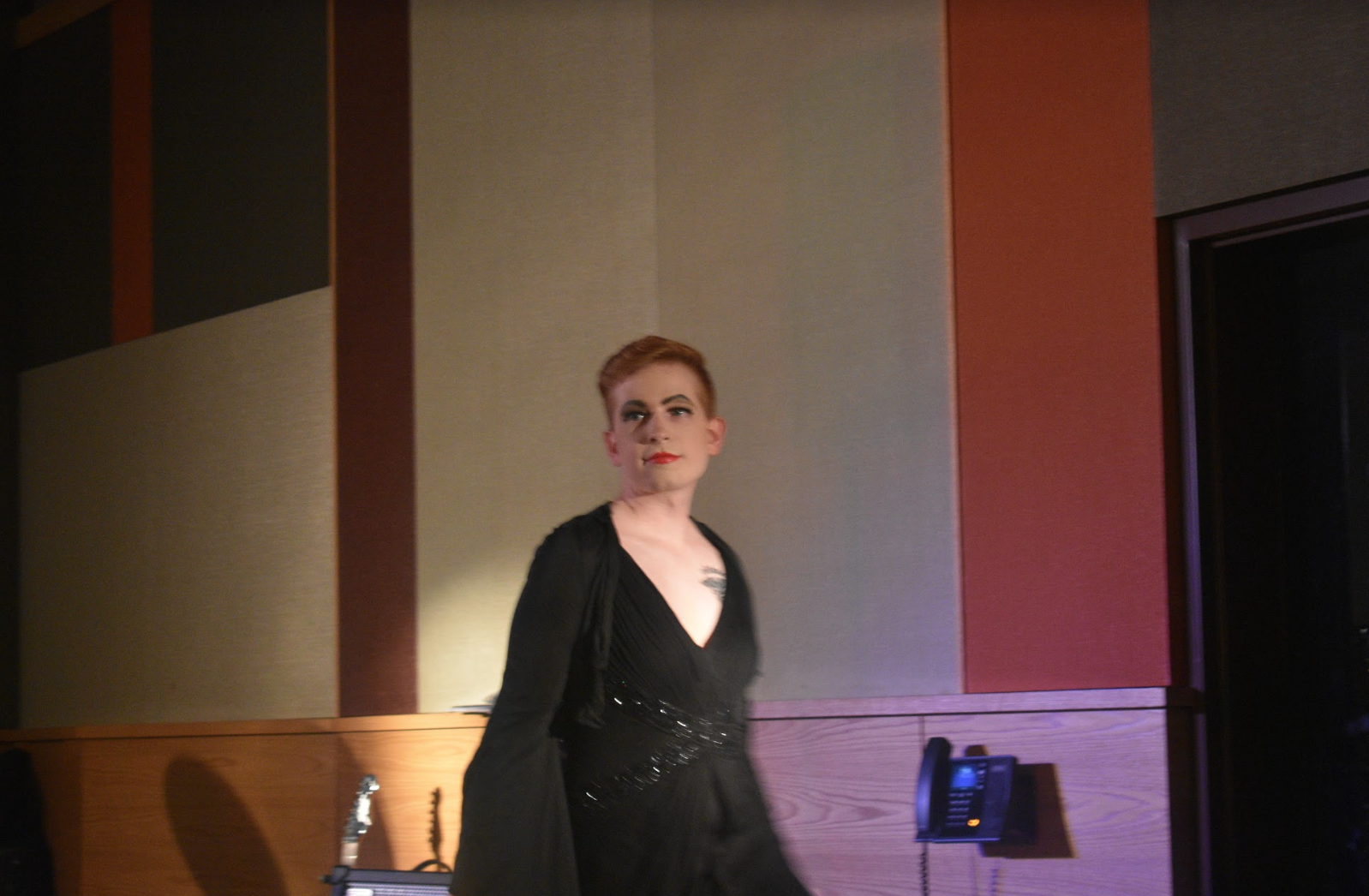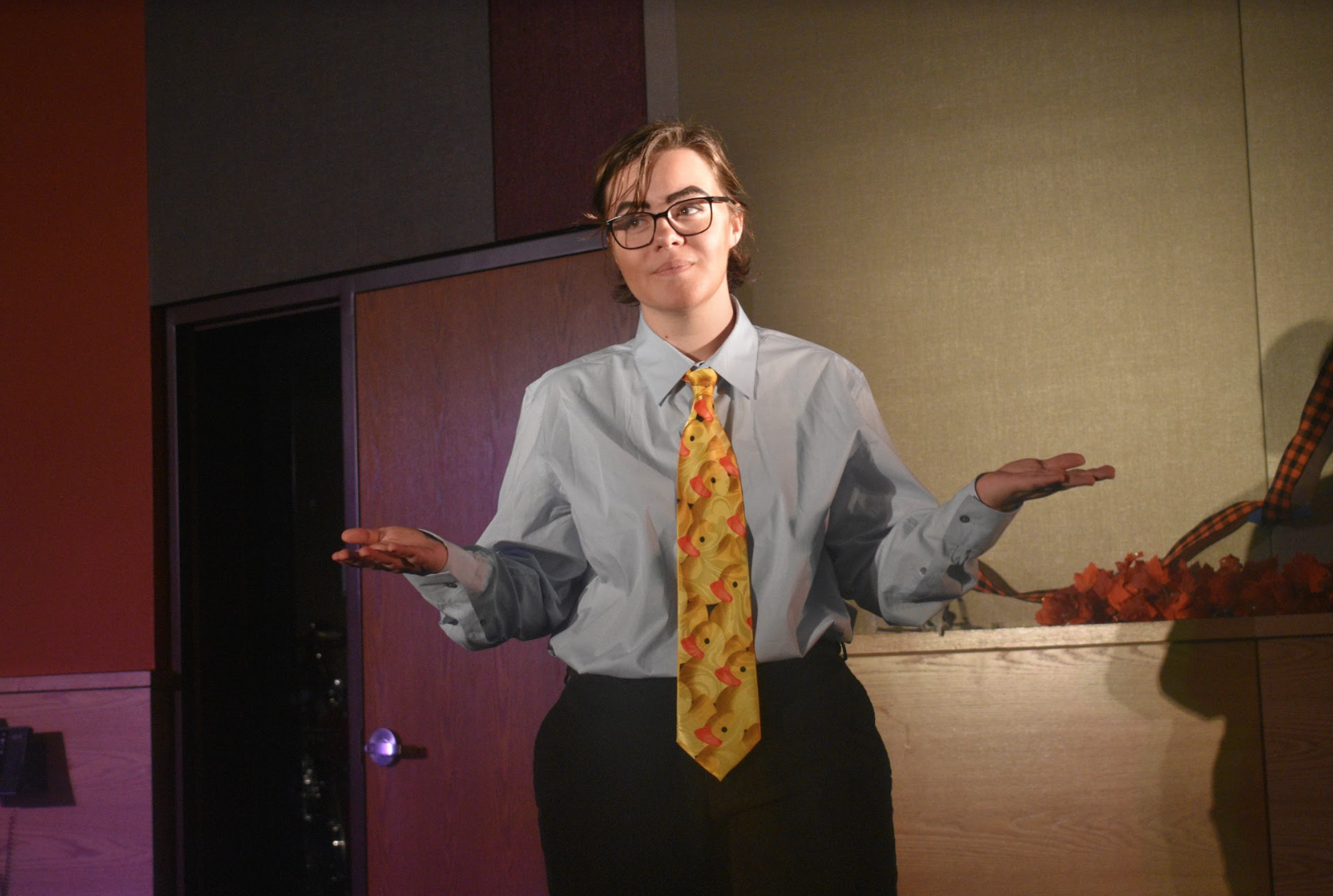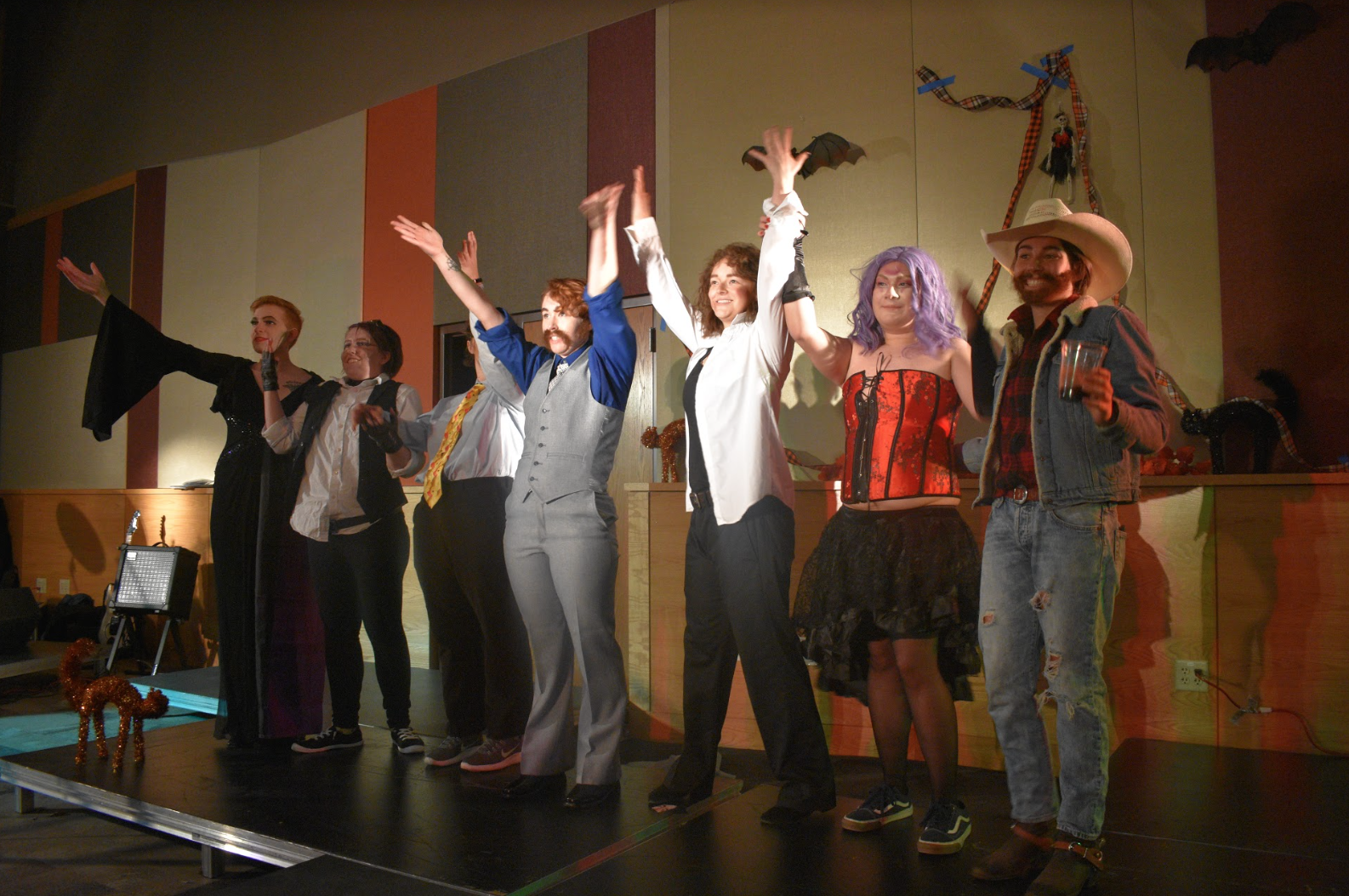Photo Source // Matt Faas, QSA Social Media Director
By: Morgan Jacobus, Staff Writer
*warning: story contains profanity*
After 12 days of waiting, the Seventh Annual Regis Drag Show was finally here after having been rescheduled due to weather (like many other events the week of Halloween). The host even addressed the peculiarity of having a Halloween themed drag show in November.
“It’s weird…12 days into November, but we don’t give a f---,” said QSA Co-President and drag performer Isaiah Pramuk whose alias for the night was Izzy Adams.
However, though the event was rescheduled, you couldn’t tell by the size of the crowd. There were so many people that came to the event that even after getting more chairs there was still a standing audience.
“This is the biggest crowd we have ever had,” said Regis professor Alyse Knorr.
The show began with a brief introduction from faculty advisers of QSA, in which they spoke about the origins and history of drag and the purpose behind it, explaining that they are here in celebration.
“This is an evening of celebration of community,” said Assistant Dean Geoffrey Bateman. “Gender is a result of an effect, the things we do, the actions we take, the way we interact in the world. We get to see the effects tonight. It’s a way for everyone to inhabit and express gender.”
Knorr also spoke of celebration, saying, “We are here to celebrate our bodies… drag gives us a way to question social norms around gender.”
Following the introductory speeches came the introduction of Izzy Adams, the emcee of the show, who built upon the discussion of how this event is a celebration in more ways than one.
“We are here to celebrate what makes life worth living: being yourself,” said Pramuk.
Overall there were seven drag performers, including Izzy Adams, though there were a few that were planning on participating in the show but couldn’t because of the rescheduling. Nevertheless, it was still a great show with loud cheers, rounds of applause, and standing ovations from the audience.
Each performer had their own reasons for participating and how they chose to perform. All the performances were expression, though some of them appeared as a form of social commentary, particularly the drag kings, through the props and references they chose to use in their performances. For instance, Vivian Gatte who performed as Bill Nye the Bi-ence guy ripped up a picture of Donald Trump during their lip-sync of “Rich, White, Straight Men” by Kesha.
Caroline Conrad, who performed as Dick Van Dyke, put together a particularly significant performance rich with references to the struggle of the LGBTQ community. In the beginning of the performance, they came in and dramatically shrugged off their suit jacket and pulled off their tie, which I interpreted as exhaustion of adhering to gender performance roles, or even exhaustion with the state of society in relation to this community. Further along in the song “This Is Gospel” by Panic! at the Disco Van Dyke points to the sky during the lyric, “I never was yours,” and then threw a bible on the ground, alluding to the battle that many queer people have with religion. As the song progresses, they grab the LGBTQ flag, waving it and wrapping themself in it, ending in celebration.
Though not all the performances meant to convey a certain message, they all had personal significance.
“I chose to participate because for a long time I have been very interested in drag and always wanted a chance to perform, and when I did, I took it,” said first year student Paul Weisner, who performed as Luna Eclipse. “Drag means so much to me, it’s a way for me to escape reality and just do what I love. I was in a bad place with my sexuality, and when I discovered drag it changed my life and made me so happy.”
Not only was this show an opportunity for students to perform drag and express themselves, it was also an opportunity for the rest of the Regis community. There were several people in the audience who had never seen a drag show, so it was an occasion to learn more and better understand the society they live in (as well as see an entertaining show of course).
“I believe many people are curious about queer culture,” said first year student Payton Donahue. “The drag show was something many had never seen before and getting that experience helps people better understand the way society is changing. I believe this is also why the drag show and queer events are so important. More people need to be familiarized with the culture in order to understand and accept. Education is key to a safe environment.”
The drag show is another step in the effort of building an inclusive community at Regis, but Regis isn’t the only one. Knorr pointed out that there are several other Jesuit colleges that are also hosting drag shows, like Georgetown University and Seattle University. As more colleges follow suit and the annual tradition of a drag show continues it is only going to build momentum and strengthen the endeavor of inclusion and acceptance.

